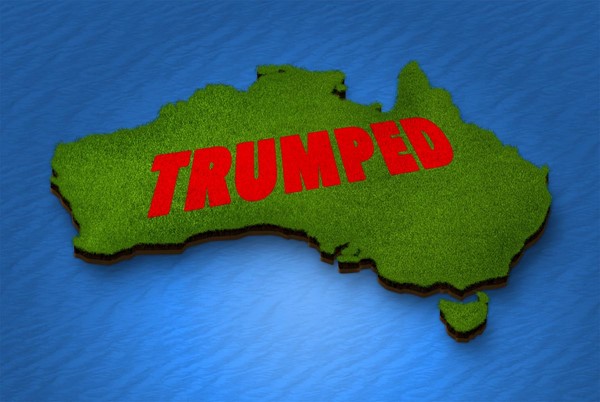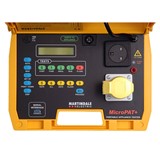What initially started out as a glorified slanging match between US President Donald Trump and his Chinese counterpart Xi Jinping about America’s multibillion-dollar trade deficit and its difficulty in competing with cheap imported Chinese goods has steadily grown into what many now view as an economic crisis of global proportions.
The US Government initially announced $US270 billion worth of tariffs or taxes on Chinese imported goods and has since added another $US200 billion worth of products to that list, meaning it now has tariffs on nearly half of all Chinese imports into the US.
The Chinese have since retaliated with their own tariffs, along with supposed currency manipulations designed to make their goods even cheaper, something Beijing denies responsibility for. This has in turn led to a further rise in tensions, with the US now threatening to extend the tariffs to cover almost all of the goods imported from China.
So what does this mean for Australia, and is there any upside?
Australia's economy has remained robust for a long time now, even in times of global financial turmoil, thanks largely to the benefits of free trade and investment, and strong bilateral and multilateral agreements with our biggest trading partners such as China, Japan and Korea.
Being caught in the crossfire between our number one ally and largest trading partner on the surface at least looks like a lose/lose situation, especially if other countries join in a trade war to protect their domestic industries.
KPMG Australia chief economist Brendan Rynne said Australia could lose up to 2.5 per cent of GDP annually if the current situation continues, as rising import costs in China means less money for consumption, resulting in a slowing of the flow of trade, a shrinkage of our economy and resulting job losses.
Of course there’s a whole range of other factors such as currency valuations and exchange rates, government bonds and share market performance that come into play, but, to cut a long story short, trade wars don’t usually have happy endings for economic minnows caught in the middle.
In this case, US tariffs could lead to a shrinkage in the money circulating in the Chinese economy, and that means less for the Chinese to spend on Australian holidays or education courses for their children.
UBS Chief Economist George Tharenou says the best thing from an Australian perspective is that we have not experienced much in the way of negative growth yet, and that the fall in the Australian dollar has been good for the local economy as it makes our exports more competitive.
“Our major export earners like iron ore are relatively insulated from the trade war. However, an ongoing conflict will leave us exposed to a shrinking global economy,” Tharenou adds.
Regarding sectors of the economy that could gain in the long term, Tharenou believes it’s far too early to tell who, if anyone, will benefit. “It takes a long time for companies to redirect their focus from one major market to another, so those ramifications have a long way to play out.”
AMP Capital Head of Investment Strategy and Chief Economist Shane Oliver said there was no obvious way in which Australia as a whole, or even specific sectors, would benefit from the current trade war and that sourcing other markets for our commodities would be highly problematic.
“If China buys less of our commodities to make products to sell to the US that’s a problem for us,” he says. The one upside, he adds, is that Australia’s economy remains in relatively good shape in these uncertain economic times and a sizeable loss in the mid-term elections due in November for the Trump Administration may lead to a more conciliatory approach regarding trade and deficits.
Have an opinion on this topic you'd like to share? Click 'Have Your Say' below.






